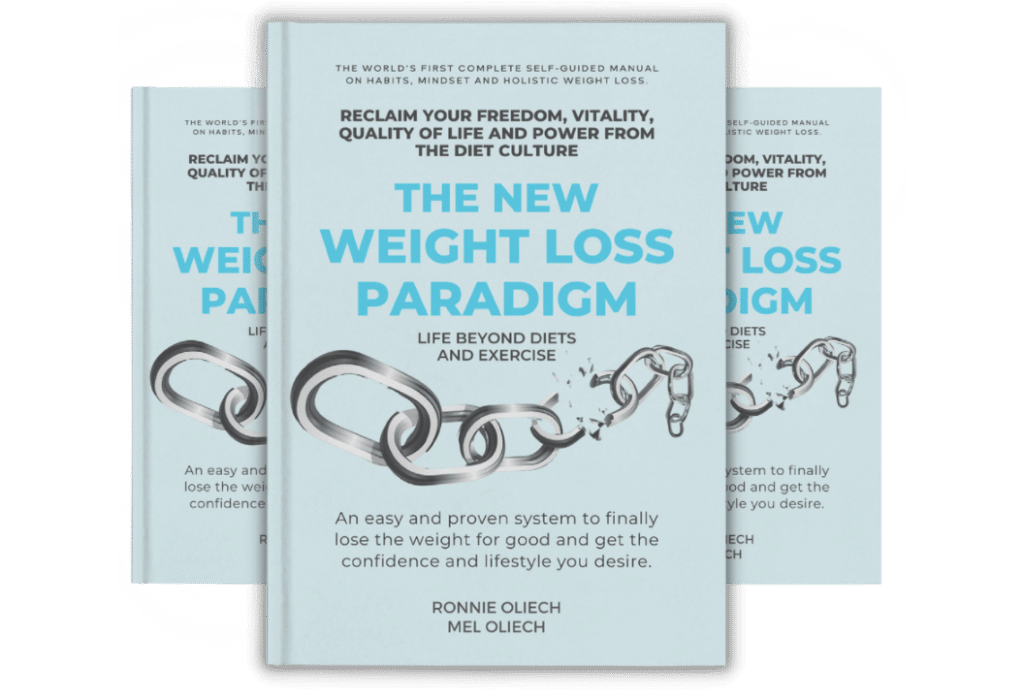You’ve been making an effort to lose weight and you’ve been going pretty well. You’ve been sticking to your eating plan, getting all your workouts done and haven’t had a binge since you started your diet. All in all, you’re pretty pleased with how things are going and you’re even beginning to notice that your clothes are fitting a bit better.
But then, with just one party, you fall off the wagon completely. Your resolution to have just one drink goes out the window when you see all your friends drinking. The promise you made to yourself about not eating too much doesn’t seem important when you see the plates of finger food being passed around. And when you realise that it’s an all-you-can-eat dessert buffet on offer, you decide that you may as well indulge, seeing you’ve already broken two promises that night, and so you load up your plate.
By the time you get home, you feel bloated, sick and disgusted with yourself. And you vow to get back on the wagon and do better next time.
But what do you do now?
The morning after…
If you’re like many people, you might begin making plans to offset all the extra calories you consumed the night before. This usually involves extra or longer workout sessions — maybe even two a day for the next week, and definitely cutting back on your calorie intake for a while. You might even consider doing a ‘quick detox’ to kick-start you again or consider fasting for the next week. Or maybe your motivation is at an all-time high, and you head off to the supermarket to buy a whole lot of healthy food so you can prepare healthy meals and get back on track.
While these options might be one way to deal with your situation, there is another way.
Work out why you lost control?
Before you start going into damage control, ask yourself why you think you lost control at the party? There may be several reasons.
You’ve been trying to be perfect
Losing control around food often happens when you’ve been fairly strict on yourself with your eating and your exercise. Limiting food groups, depriving yourself of your favourite foods and trying to get everything ‘right’ is a recipe for disaster. Sooner or later, you’ll crave the foods you’ve been denying yourself, and you’re likely to end up bingeing on them. If you’ve been too controlling with your food, and not giving yourself any leeway to enjoy yourself, then loosening the reins may help you limit bingeing in the future.
You have a strong diet mindset
Another reason for your lapse may be because you have a strong diet mindset. People with a diet mindset restrict or deprive themselves of food, constantly look for the next quick fix and take an ‘all-or-nothing’ approach. They also ‘fall off the wagon’ a lot and ‘get back on track’ a lot.
Diet mindset creates a great amount of inner turmoil and angst. You’ll constantly feel the need to be in control and your lack of flexibility leads to chronic stress, a known cause of weight gain. Learning to relax around food, and changing your mindset to one that will help you sustain healthy eating habits for life, will help you get over your bingeing.
You didn’t eat enough
People who diet often don’t eat enough food which leads them to become hungry. And you know that when you’re hungry, self-control goes out the window completely! To compound the problem, people who are trying to lose weight often starve themselves all day when they have a social event to go to. They believe that by going without food all day, they’ll consume less calories. But this approach always backfires. Firstly, you’ll be famished when you arrive, so you’ll find it extremely difficult to show some self-control. Secondly, drinking alcohol on an empty stomach means it will go to your head a lot quicker. Alcohol has been shown to increase your appetite and your levels of hunger. Furthermore, it lowers your inhibitions which leads to poor decision-making, increasing the likelihood that you’ll make poorer food choices.
When you eat enough healthy food throughout the day, you won’t be so hungry and you’ll be able to give more thought to your food choices, instead of reaching for the first thing you see.
You felt like you were missing out
Sometimes when you restrict your food so much, you begin to feel that you’re missing out on something. When you see your friends drinking, you want to join in with them. When you see the dessert buffet you take a bit of everything because you don’t want to ‘miss out’. What you don’t realise is that by engaging in this line of thinking, you’re actually missing out on the thing you want the most — to lose weight.
Giving yourself permission to have these kinds of foods every now and then will help you feel that you’re not missing out at all.
Accept what has happened and move on
While it may be hard to do, accepting what has happened, and moving on is the best approach. When you start trying to offset calorie intake with excessive exercise and limiting food, you only compromise your metabolism, which will make it even harder for you to lose weight in the long run. You also perpetuate the diet-binge cycle, which will lead to further episodes of bingeing and falling off the wagon.
Don’t get on the wagon to start with
The best approach to ensure that you succeed with your weight loss goals, is to avoid jumping on a wagon altogether. Instead of going on a diet (which implies that you come off it), you should aim to change your lifestyle to ensure it supports long-term weight loss. An important part of this is learning to balance healthy eating with your favourite foods, so you never feel deprived. This will also help reduce your stress levels, and will mean that you’re more likely to lose weight because you won’t be stuck on the diet rollercoaster.
Plan for treats
Having a structured weight loss program is important. However, it shouldn’t be rigid. Your plan should include times for eating out at restaurants or cafes. It should allow you to enjoy social occasions with your family and friends, and it should factor in room to enjoy your favourite foods such as ice-cream or chocolate, every now and then. The trick is to plan for these things. When you plan for them, you’ll enjoy them without feeling guilty. You’ll also be more likely to stick to healthy eating the majority of the time, because you know you’ve allowed for some of your favourite foods in your weekly menu.
Change your mindset and your habits
The thing that will make a huge difference with your weight loss journey, is learning to let go of the perfectionist and diet mindsets. You may believe they serve you well, but in reality, they are keeping you stuck. The enormous amount of pressure and stress that living this way places on you only inhibit your weight loss efforts. It may even cause you to gain weight.
However, these two mindsets are habits that you have probably been carrying around with you for some time, and so they may take some time to overcome. Our advice is to work with a coach who understands these habits and how they impact you, and who can help you overcome them.
Seek structure and accountability
Finally, you need to include structure and accountability into your weight loss plan.
There is nothing wrong with asking someone to help you lose weight. The right coach will be able to develop a structured, personalised plan for you, so you can begin addressing the diet mindset and perfectionist habits that are holding you back. They’ll also be able to advise you on the correct nutrition and training program to help you reach your goals.
When you add accountability into the equation, you’ll be well on your way to achieving your goals. Being accountable to your coach will mean that you’ll be taking the right actions you need to take, in order to address your habits and achieve long-term permanent weight loss.


















